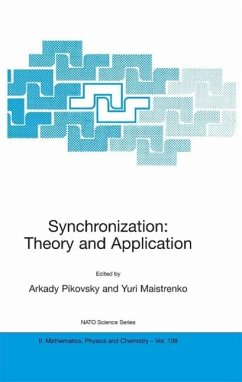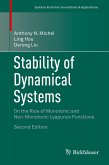Synchronization is a universal phenomenon that is encountered in nature, science and engineering. The book presents a broad view of modern theoretical and experimental approaches to synchronization, especially in complex and chaotic systems, and its applications in life sciences and engineering. Contributors include applied mathematicians, physicists, biologists, and specialists in communications and control theory. The study of synchronization is presented in its many aspects: basic mathematical theory, numerical simulation of complex systems, applications of methods in theoretical physics, experimental implementation, and applications in engineering and life sciences.
Dieser Download kann aus rechtlichen Gründen nur mit Rechnungsadresse in A, B, BG, CY, CZ, D, DK, EW, E, FIN, F, GR, HR, H, IRL, I, LT, L, LR, M, NL, PL, P, R, S, SLO, SK ausgeliefert werden.


